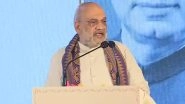New Delhi [India], May 22 (ANI): A female social activist, Yogita Bhayana, is helping outstation patients stuck in Delhi due to the lockdown by arranging buses for them to go back to their native places.Many patients who came to Delhi for treatment at All India Institute of Medical Sciences (AIIMS) and other hospitals, were left in the lurch when government-imposed lockdown and "hospitals literally 'shut' their doors for non-COVID patients".Speaking to ANI, social activist Yogita Bhayana said, "From day one of lockdown, the most vulnerable group were patients who had come to Delhi for seeking treatment. Most of these patients have no place to stay or live.""We found a group in which heart patients, cancer patients and others with burn injuries were there. Many of them were not even able to walk. They are poor and also suffer from disabilities or problems," she added.She also urged the administration to prioritise the travel of these outstation patients as they require urgent care and attention.Bhayana arranged buses for them out of her own pocket. She also got the necessary permission required from the administration to take the buses to other states so as to send these helpless people home.The first batch of buses carrying these outstation patients left from Delhi at around 2.30 AM on Monday while the second lot left from Delhi's Sarai Kale Khan on Thursday for their respective destinations.The Delhi High Court recently asked All India Institute of Medical Sciences (AIIMS) to look into the possibility of restarting its Out Patient Department (OPD) services in a limited way, in the next two weeks."We are happy to note that AIIMS is now disbursing medicines prescribed by its doctors to the patients under its treatment from its pharmacy. Such disbursement should continue without endorsement in respect of the prescribed medicines for the duration for which the prescription is made," said a division bench of the High Court presided by Justices Vipin Sanghi and Rajnish Bhatnagar.The OPD services at AIIMS were shut down on March 24, following the COVID-19 outbreak. (ANI)
(The above story is verified and authored by ANI staff, ANI is South Asia's leading multimedia news agency with over 100 bureaus in India, South Asia and across the globe. ANI brings the latest news on Politics and Current Affairs in India & around the World, Sports, Health, Fitness, Entertainment, & News. The views appearing in the above post do not reflect the opinions of LatestLY)













 Quickly
Quickly


